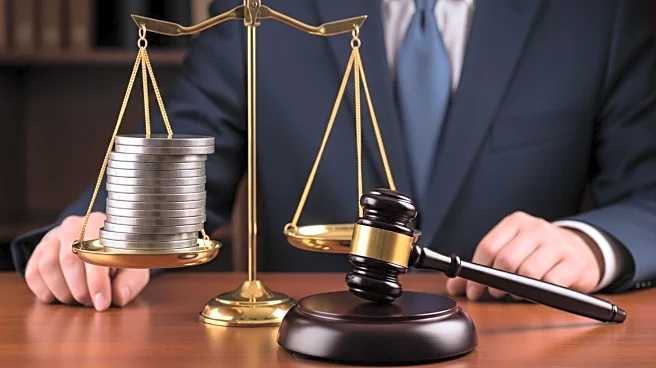What's Happening?
The Supreme Court will examine whether President Trump lawfully used emergency powers to impose tariffs on various countries. The tariffs, announced under the International Emergency Economic Powers Act (IEEPA), have been challenged in court for potentially exceeding presidential authority. Lower courts ruled that the tariffs violated the law, prompting the White House to appeal. The case will be heard in November, focusing on whether IEEPA authorizes such tariffs and if it unconstitutionally delegates legislative power to the president.
Why It's Important?
The case has significant implications for U.S. trade policy and presidential powers. A ruling in favor of Trump could expand executive authority over economic measures, affecting international trade relations and domestic industries. Conversely, a decision against the tariffs could limit presidential powers and require legislative approval for similar actions. The outcome will impact businesses, consumers, and the broader economy, influencing trade dynamics and economic stability.
What's Next?
The Supreme Court's decision could lead to changes in how tariffs are imposed, potentially affecting existing tariffs and future trade policies. If the tariffs are deemed unlawful, the administration may need to explore alternative legal avenues for imposing trade measures. The case may also prompt legislative action to clarify the scope of presidential powers under IEEPA.
Beyond the Headlines
The legal debate highlights the balance of power between the executive and legislative branches, raising questions about the limits of presidential authority in economic matters. The case may influence future interpretations of emergency powers and their application in trade policy.








